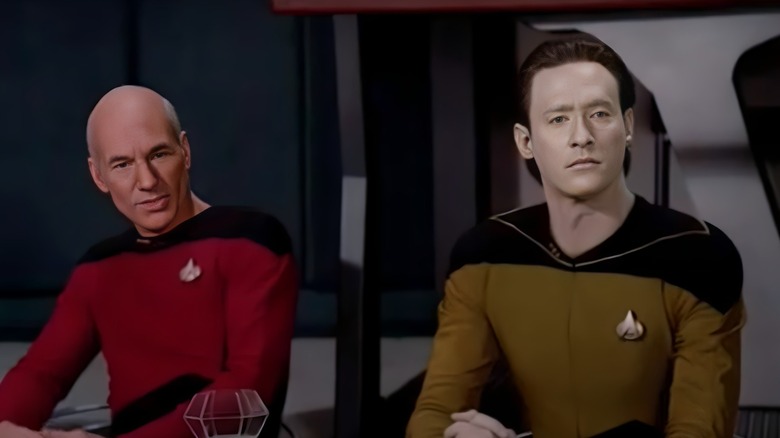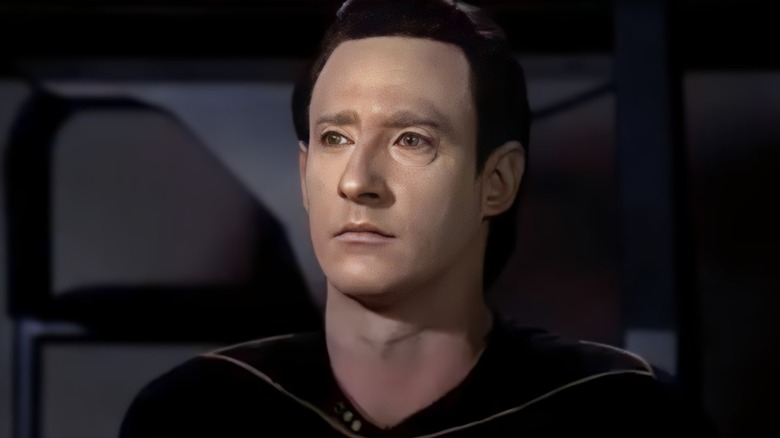Is Star Trek TNG's Most Powerful Scene In 'Measure Of A Man' An Argument For AI?
Some Star Trek storylines have aged poorly, but most long-running franchises experience ups and downs. However, the saga's exploration of strange new worlds and forward-thinking concepts has also proven to be prescient at times. For example, when "Star Trek: The Next Generation" Season 2's "The Measure of a Man" episode aired in 1989, artificial intelligence seemed like an alien concept. Nowadays, it's an everyday tool that's polarizing humanity — but did this episode's most memorable scene argue in favor of AI's existence all those years ago?
"The Measure of a Man" is a story about Lieutenant Commander Data (Brent Spiner), a sentient android, and the debate surrounding his right to live. Bruce Maddox (Brian Brophy), a scientist, wants to dismantle the robot and produce replicas, which causes some conflict between the crew. In the episode's most memorable scene, Captain Jean-Luc Picard (Patrick Stewart) goes to bat for Data and argues the android every bit as sentient, self-aware, and conscious as he is. The hearing concludes with them accepting that Data is more than a machine, and he is granted the right to live.
The episode can be interpreted as an endorsement of AI technology, as the story argues for a machine's right to exist at the expense of using its data to potentially advance Starfleet. However, the themes of "The Measure of a Man" aren't as clear-cut as that, and that's what makes it one of the standout episodes of "Star Trek: The Next Generation." Let's explore why.
The Measure of a Man presents a nuanced argument about AI
"The Measurement of a Man" isn't about supporting artificial intelligence, per se. The core idea is that every conscious and sentient being deserves the right to self-determination and personal freedom, regardless of its species, and Data shows enough self-aware qualities to prove that he's more than a mindless robot.
That said, some of the ideas pertaining to AI explored in "The Measure of Man" are relevant today, which might make the aforementioned scene's arguably pro-AI stance seem stronger. As documented by Cambridge University, some academics believe that AI is developing so fast that it could become conscious in years to come. If that happens, should computer technology be protected in order to keep it safe from harm? These are the questions the scene puts forward, and it can be viewed as being supportive of AI if machines ever become sentient.
In short, "The Measure of a Man" isn't in favor of the proliferation of AI — if that was the case, the Starfleet crew would have allowed Bruce Maddox to dismantle Data and create more robots. It merely argues that AI might deserve rights if it ever becomes sophisticated enough to think, feel, and display other qualities we don't associate with machines. And if some scientific theories are to be believed, computer technology might reach that point in the near future.
To learn more about this series, check out the untold truth of "Star Trek: The Next Generation."

